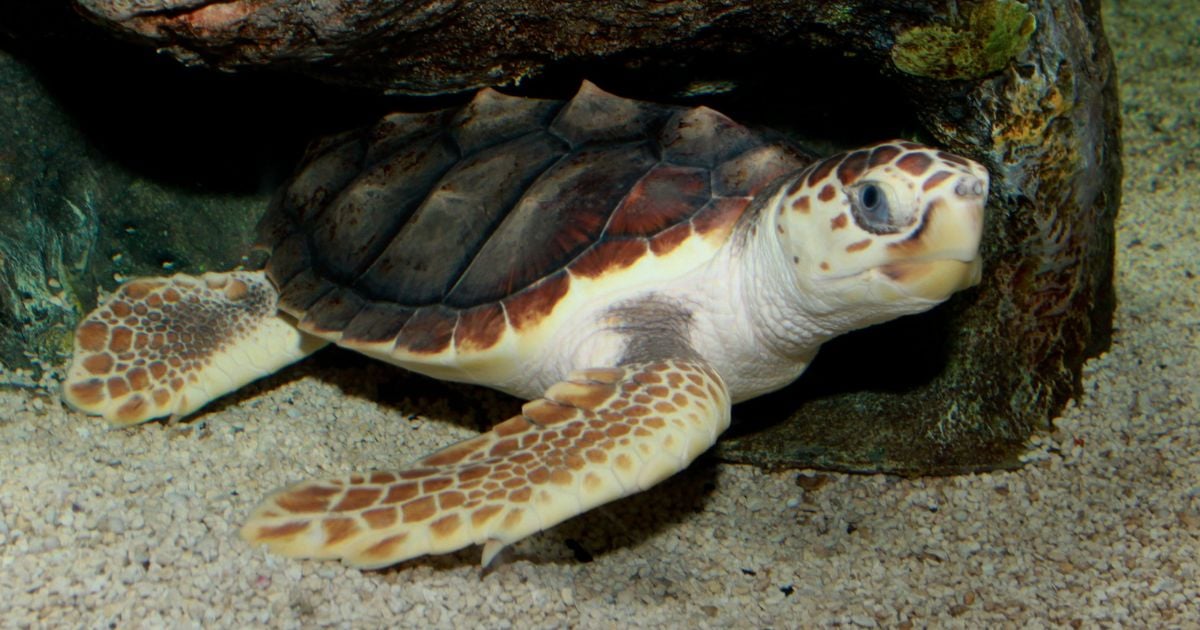Concern has been growing over the alarming rise in the illegal sale of sea turtle meat, specifically loggerhead turtles (Caretta caretta), through social media platforms in Cuba. Xenia Rivery raised the alarm last Friday on Facebook, highlighting that this practice is not only illegal but also highly irresponsible and cruel, threatening an already vulnerable species.
"Do not buy loggerhead turtle meat," Rivery warned, suggesting that the demand for this product perpetuates the existence of an illegal market, thus encouraging the commercialization and poaching of this vulnerable species. "Its meat is sold illegally in Cuba, ending up on the tables of some Cubans through poachers," she emphasized.
In the comments section, both Rivery and online user Juan Carlos Sáenz de Calahorra mentioned that in Gibara, located in the province of Holguín, they were previously offered hawksbill fillets in restaurants, although they did not specify whether these establishments were state-run or private.
The International Union for Conservation of Nature (IUCN) classifies the loggerhead turtle as an Endangered species, indicating a high risk of extinction in the near future. Despite this classification, poachers continue to capture and sell its meat clandestinely.
Recent Incidents Highlighting Illegal Activity
One example of this illegal activity is the seizure of 60 kilograms of cleaned loggerhead turtle meat from a Cuban engaged in spearfishing near the Bufeadero area, close to the National Nuclear Power Plant (CEN) in the province of Cienfuegos.
Alongside the loggerhead turtle, the hawksbill and the green turtle are three critically endangered species of sea turtles that are continually threatened by their demand in the black market. To protect them and raise public awareness about the necessity to preserve their nesting areas, Cuba has undertaken various conservation actions in the past.
One of the most recent initiatives involves the monitoring and protection of the hawksbill turtle (Eretmochelys imbricata) by specialists from the Flora and Fauna company in the Jardines de la Reina National Park along the southern coast of this central Cuban province. However, the increasing scarcity makes it challenging to prevent fishing practices that endanger ecosystems.
The food crisis in Guantánamo, exacerbated by the regime's mismanagement, has forced residents to seek alternative means of subsistence, endangering the blue crab in the municipality of Imías due to overexploitation of this local natural resource.
The Food Monitor Program (FMP) has pointed out that the overharvesting of blue crabs in Imías is inseparable from the broader context of Cuba's food crisis, affecting the entire population.
In 2020, the Cuban government dedicated the last regular edition of the Official Gazette to disseminate all legal norms related to fishing activities in the country. Among the most important aspects are the authorizations and requirements for carrying out such activities, as well as prohibitions and restrictions.
The Fishing Law, approved in July 2019, stipulates that only individuals or legal entities, Cuban or foreign, over 17 years old with the appropriate licenses can engage in fishing. These licenses are issued for a calendar year (from January to December) and can be suspended at any time for law violations.
The Gazette also published the Regulations of the Law, signed on December 24, 2019, which includes a chapter listing actions considered violations of the legislation. According to the document, these limitations range from fishing without authorization to causing damage to coral reefs with any naval artifact, and capturing endangered species or fishing during closed seasons.
FAQs on Illegal Sea Turtle Meat Trade in Cuba
Given the rising concerns about the illegal trade of sea turtle meat in Cuba, here are some frequently asked questions and their answers to provide more context and information on the situation.
Why is the illegal trade of sea turtle meat increasing in Cuba?
The increase in illegal trade is driven by high demand, economic hardship, and the scarcity of legal food sources, pushing some individuals to turn to illegal activities for subsistence.
What species of sea turtles are most affected by illegal trade in Cuba?
The loggerhead turtle (Caretta caretta), hawksbill turtle (Eretmochelys imbricata), and green turtle are the most affected species, all of which are critically endangered.
What measures has the Cuban government taken to combat illegal fishing?
The Cuban government has enacted the Fishing Law, which includes strict regulations and licensing requirements, and has disseminated these regulations through the Official Gazette to inform the public and enforce compliance.
